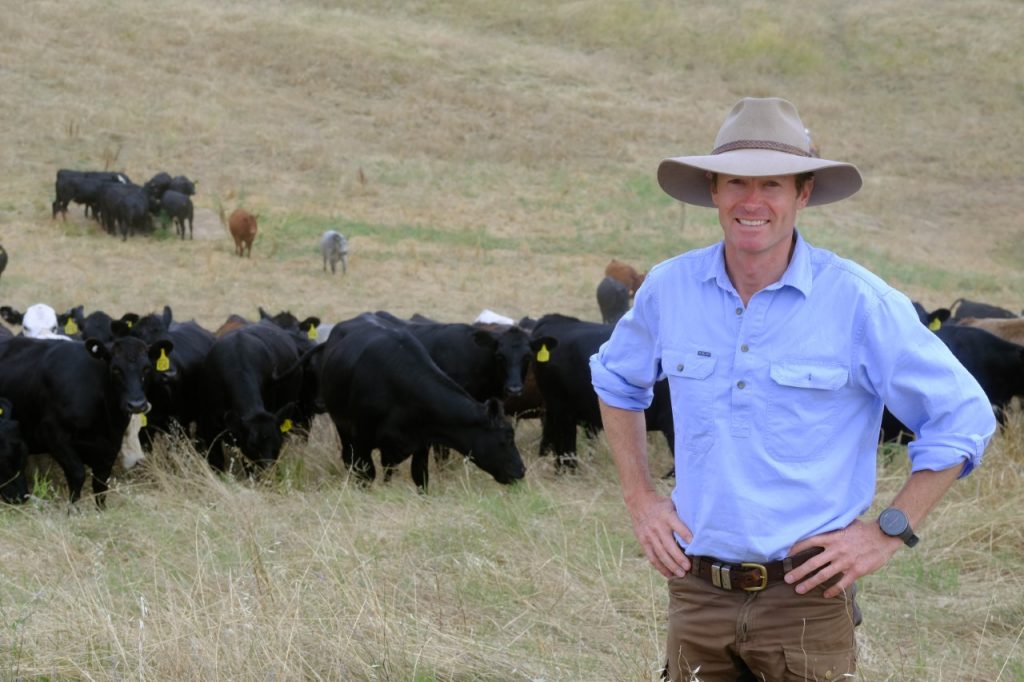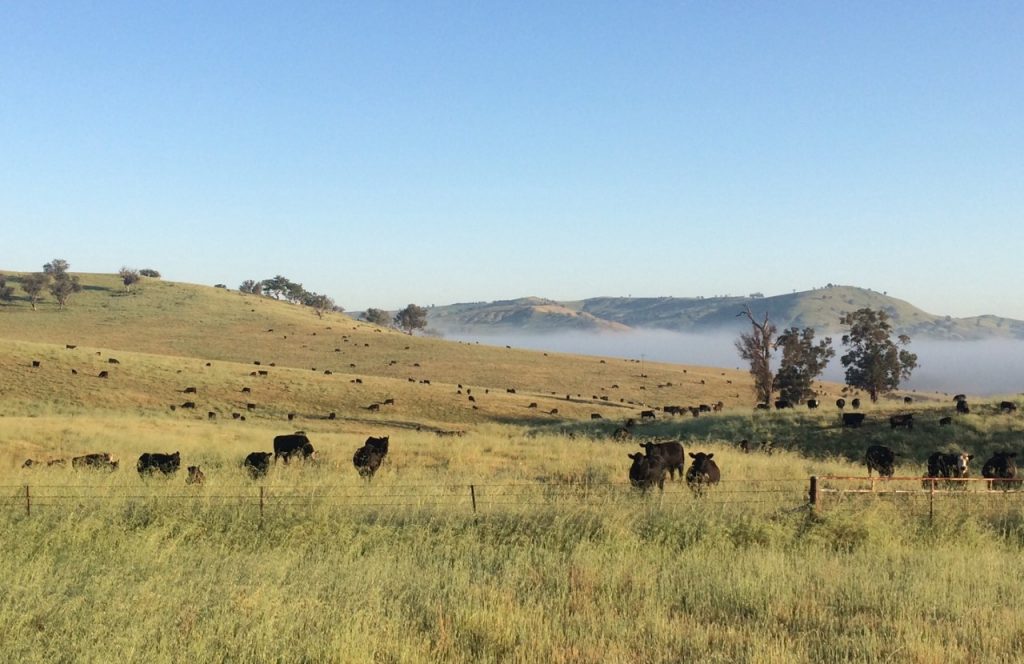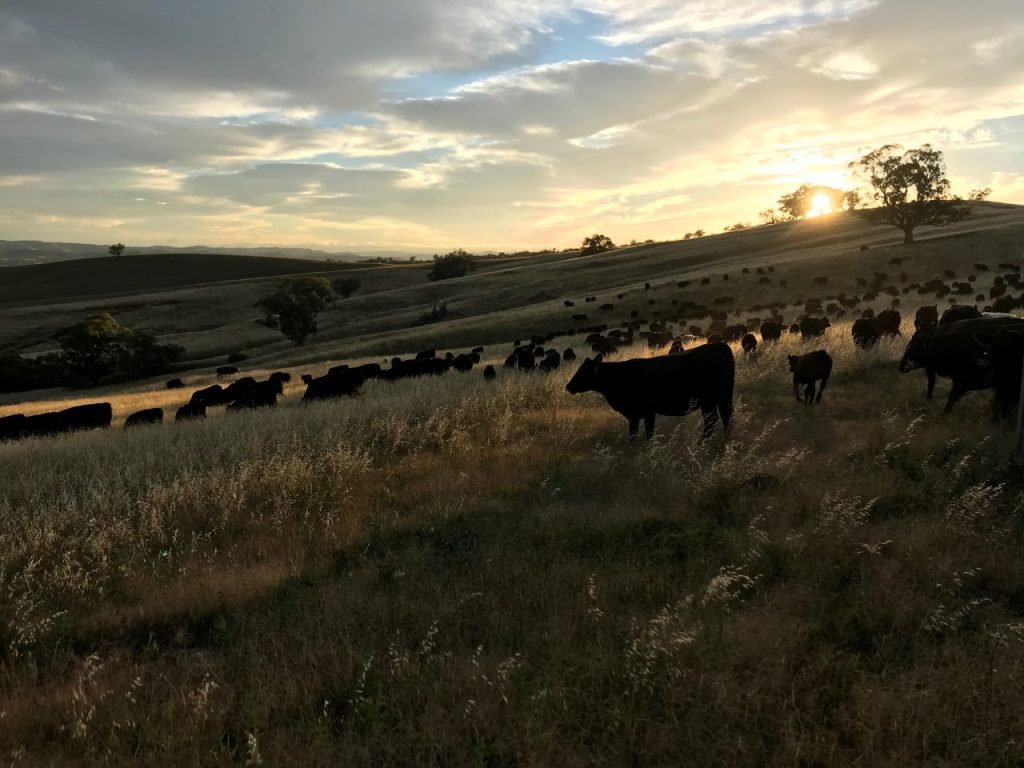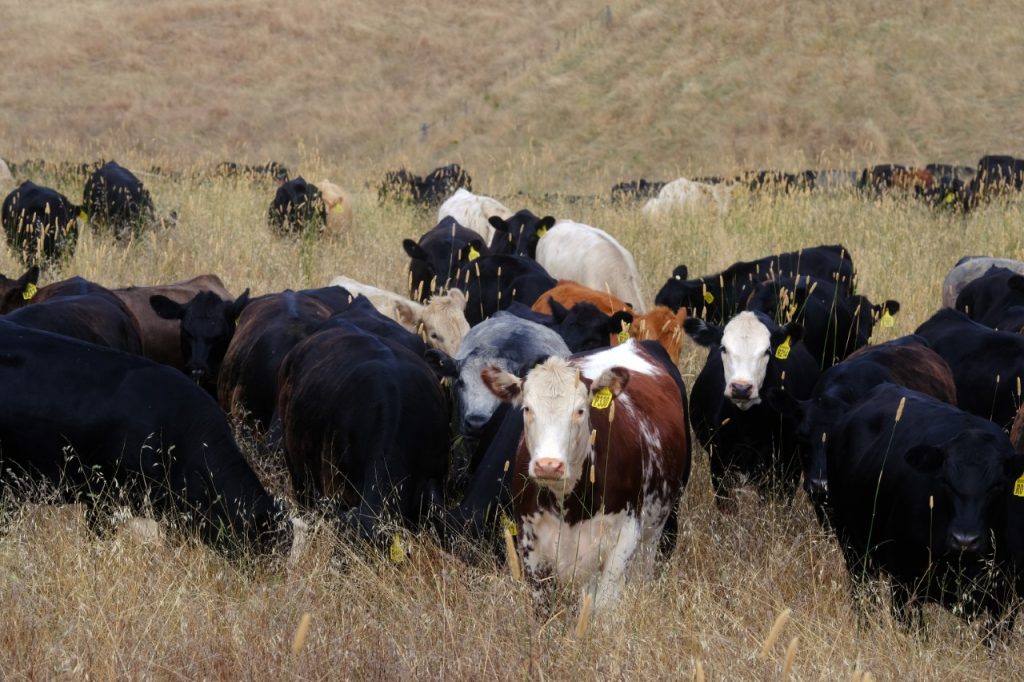Nick Austin likes to run. But not your casual 500-metre stumble – unlike most – but an ultra-marathon kind of runner. Knocking-out-a-casual-100-kilometres kind of runner. Only recently, he and a few mates went for a 20-kilometre run around Austin's generational family farm, Mundarlo, around 50-kiometres east of Wagga Wagga. A view, he says, never gets old.
"I had to slash tracks around the paddocks; the grass is head high," Nick says. "It just looks amazing. It hasn't looked like this since 2016.
It's a very pretty part of the world.

Mundarlo sits on the banks of the Murrumbidgee River, with roughly 3500 acres of alluvial river flats and rolling granite hills. Nick is the fourth generation to manage the property alongside his wife Deanna and their two teenage children, Ellie and Harry. His parents, Frank and Diana also still live on the place.
While Nick has comfortably settled into the role, farming wasn't originally part of the life plan.
"I studied mechatronics and worked as a mechanical engineer for five years down in Melbourne on construction sites and in railway maintenance in South Australia," Nick says. "In 2001, I thought I'd go home and tell mum and dad that I didn't want to come home and be a farmer. Engineers love control and I didn't think I'd be able to handle the variability of the climate as a farmer. Then I got home and I never left. I loved it."

Generational change triggers new mindset
The grazier's philosophical take on farming rises to the top of the conversation like cream on milk. He credits his mindset shift - from a penchant for control and the structured dance between movement and mechanics, to a deep and abiding passion for the natural world - to his wife, Deanna, his experience with drought and his study of Holistic Management.
"My wife, Deanna isn't from a farming background and I think I started to see things through her fresh eyes. She was definitely instrumental in changing my mindset and moving from an engineering mindset and a historical farming paradigm where you have to work dawn to dusk. You don't have to work seven days a week. Some jobs can be left behind," Nick says. "It gets wet, it gets dry. When you work in nature, you're working with natural processes which are inherently chaotic and complex. You just have to work with it."
Across the generations the Austins have bred their own sheep and cattle whilst cropping on the side - a traditional take on farming that was knocked to six by the millennium drought, the floods of 2010 and 2012 and the big dry of 2018 and 2019.
"During the millennium drought I had decided I didn't want to feed cattle anymore and in the most recent drought we decided to sell our breeding herd. It wasn't an easy decision, but it was a necessary one," he says. "Maybe with prices as they are now, we could have held onto them and fed them, but it didn't sit well with us. I'm here on my own, and would have been feeding those animals 24 hours, seven days a week. At the time it wasn't financially viable to do that and the mental health factor and the wear and tear was a big factor."
You make decisions based on what you know in the context of what is happening at the time, and it was the right decision for us.

A transition to holistic management
The Austins now trade cattle, running around 500 head of cattle and 1200 sheep using Holistic Management grazing principals.
"I've made a decision to never reach our full capacity of stocking and keep a buffer of grass there which allows us to always have feed on hand and to take advantage of any opportunities that might appear during dry periods," he says. "I did a Holistic Management course when I first came home when I was 28, and have studied two Holistic Management courses since. It's all about shifting the decision making process, making conscious choices based on the greater context of where you see your life and what you want from it."
Part of the grazing principals is running all stock in one large mob, moving through smaller sub-divided pastures and letting each paddock recover and rejuvenate for longer periods post-grazing. Now, Mundarlo is 100% covered, 100% of the time, with more plant species and greater biodiversity rearing its head in the native country - an indication of improved soil health, which Nick tests every year.
Nick believes this grazing methodology is critical to meaningful contribution towards climate change.
"Landscape regeneration with properly managed livestock is absolutely key. I know there's bad press, especially around methane, but properly managed livestock can pull so much more carbon out of the atmosphere and into the ground than the methane they produce," Nick says. "Grass fed livestock production, or what I call rangeland farming is vital in these arid climates, where cattle are an integral part of nutrient transfer and recycling. Without them, we cannot improve our country. We need the livestock to help knock down plants and get them onto the soil surface, which allows bugs and other microbes and fungi within the soil to recycle that nutrient."
Nick calls the gut biome in cattle and sheep a "biological irrigator", helping to breed and circulate good bugs and bacteria in a climate where the heat can often kill them.

"Carbon cycling needs livestock. We can pull carbon from the atmosphere into the soil, but without livestock it is very difficult," he continues. "Grass fed meat is just a wonderful product. Not only is it a nutritiously dense product which we evolve to eat. But with proper management livestock can increase biodiversity and improve landscapes. I get a little frustrated by those who say that eating grassfed meat is bad for the environment."
For Nick, the future looks like more sub-division of paddocks, a potential woolshed build and watching his children grow on the farm he has loved since he was a kid.
"There's no better place to grow up than on a farm. It's such a grounding thing, living among animals and in the open air, experiencing the freedom that being on the land has to offer," he says. "It's way too early to know if they will come back to the farm, but I just hope they find satisfaction in their career as I have."






